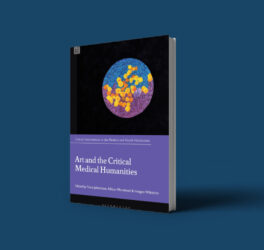
Over 900 genetic links to osteoarthritis, including 500 that have never been reported before, have been uncovered in breakthrough research from the University of Sheffield.
The landmark study, published in the journal Nature, involved an international research collaboration to undertake the largest-ever genome-wide association study on osteoarthritis using the genetic information of nearly two million people.
By comparing the genetic codes and entire DNA of almost half a million individuals with osteoarthritis with almost 1.5 million people without the condition, the team identified 962 genetic variations more commonly found in those with osteoarthritis, 513 of which had not previously been identified.
The findings pave the way for the development of potential drug treatments and personalised therapies for people living with the degenerative condition.
Osteoarthritis is the leading cause of disability and chronic pain worldwide, affecting an estimated 595 million people globally. Projections suggest that this number will rise to one billion by 2050. Despite its impact on individuals and societies, no disease-modifying treatments are currently available.
By integrating diverse biomedical datasets, the researchers from the University of Sheffield and Sheffield Teaching Hospitals Foundation Trust, also identified 700 genetic disease-associated variants that were implicated in the development of osteoarthritis. Eight biological processes involved in regulating the body’s internal systems and cell function were also discovered, shedding light on the biological mechanism of the disease. These include both the circadian clock and development signalling pathways.
Notably, 10 per cent of these genes encode proteins that are already targeted by drugs approved for use in other conditions, which could accelerate treatment development.
Professor Mark Wilkinson, Professor of Orthopaedics at the University of Sheffield and Honorary Consultant Orthopaedic Surgeon at Sheffield Teaching Hospitals NHS Foundation Trust, said: “These are hugely important findings which open up exciting new avenues in our search to find new drug treatments for the millions of people living with osteoarthritis.
“As well as identifying potential drug targets and opportunities for us to repurpose existing treatments that already target these genes in other conditions, this research has also significantly advanced our understanding of the underlying biological mechanisms associated with the disease. This holds enormous potential, in terms of developing more effective and personalised therapies and transforming future care.”
The study included genetic data from over a thousand Sheffield volunteers and was led by Helmholtz Munich, the largest scientific research organisation in Germany.








